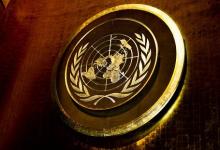
How to share the world's resources
At this critical juncture in human history, only a united global public can pressure governments to reorder their distorted priorities, cooperate more effectively, and share the resources of the world more equitably. As outlined in the sections below, a crucial first step is for UN Member States to implement an international program of emergency assistance to end life-threatening deprivation, followed by a longer-term transformation of the global economy in order to secure an adequate standard of living for all within ecological limits.






